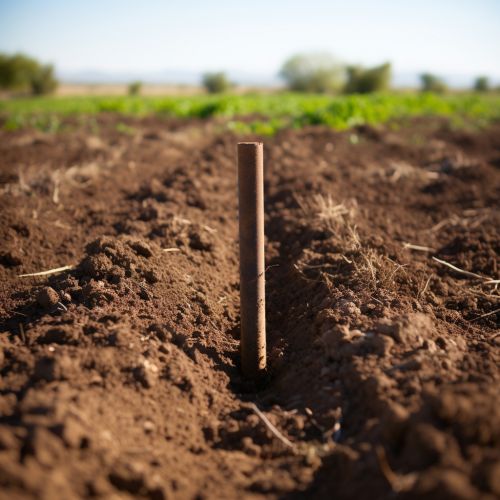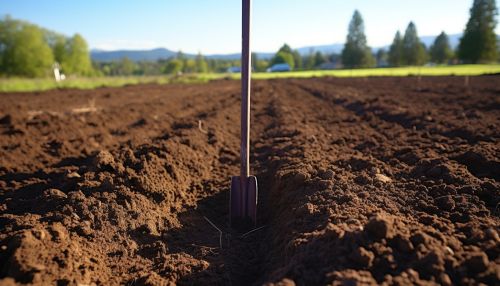Soil Probe
Introduction
A soil probe, also known as a soil sampler, is a tool used in the field of soil science to collect samples of soil for further analysis. This tool is essential in various fields such as agriculture, environmental studies, geology, and construction, among others. The soil probe allows for the extraction of soil samples from different depths, providing a comprehensive understanding of the soil profile and its properties.


Design and Function
A typical soil probe is a long, cylindrical device made of durable material, often stainless steel or chrome-plated steel. The probe is designed to penetrate the soil and extract a core sample, which can then be analyzed for various properties such as moisture content, nutrient levels, pH, and the presence of contaminants. The design of the soil probe varies depending on the specific requirements of the task at hand. Some probes are designed to collect shallow samples, while others can reach deeper layers of the soil.
The function of a soil probe is to provide a quick and efficient method of obtaining soil samples. The probe is pushed or driven into the ground, often with the aid of a footstep or a slide hammer. Once the desired depth is reached, the probe is removed, bringing with it a core sample of the soil. This sample can then be removed from the probe and prepared for analysis.
Types of Soil Probes
There are several types of soil probes, each designed for specific applications and soil conditions. These include:
Tube Soil Probes
Tube soil probes are the most common type of soil probe. They are typically made of a hollow metal tube with a handle on one end and a sharpened edge on the other. The sharpened edge is used to penetrate the soil, and the hollow tube collects the soil sample. Tube soil probes are often used in agriculture and environmental studies to assess soil health and detect potential contaminants.
Auger Soil Probes
Auger soil probes, also known as soil augers, are designed to collect samples from deeper soil layers. They feature a helical screw design that allows them to penetrate harder soils and reach greater depths. Auger soil probes are commonly used in geology and construction to assess soil stability and suitability for building.
Slide Hammer Soil Probes
Slide hammer soil probes are designed for use in hard, compacted soils. They feature a heavy metal weight, or slide hammer, that is raised and dropped to drive the probe into the ground. This type of soil probe is often used in construction and geotechnical engineering to assess soil compaction and strength.
Applications
Soil probes are used in a wide range of applications, including:
Agriculture
In agriculture, soil probes are used to assess soil health and fertility. They allow farmers to determine the nutrient content of their soil, detect potential contaminants, and assess the need for fertilization or other soil amendments. Soil probes are also used to determine soil moisture levels, which can inform irrigation practices.
Environmental Studies
In environmental studies, soil probes are used to collect soil samples for analysis of contaminants and pollutants. They are often used in environmental impact assessments, site remediation projects, and pollution monitoring programs.
Geology
In geology, soil probes are used to study the composition and structure of the earth's soil layers. They can provide valuable information about soil types, mineral content, and the presence of groundwater or other subsurface features.
Construction
In construction and geotechnical engineering, soil probes are used to assess the suitability of a site for building. They can provide information about soil stability, compaction, and the presence of bedrock or other subsurface features that could affect construction.
